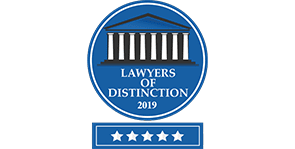Posted On July 22, 2025 California
Receiving a denial for your personal injury claim can be incredibly frustrating, especially when you’re dealing with medical bills, lost wages, and emotional distress after an accident. However, a denied claim isn’t the end of the road. In California, you have rights, and with the correct approach, you can still secure the compensation you deserve.
Insurance companies deny claims for various reasons. Understanding why your claim was denied is the first step in successfully appealing the decision.
One of the most common reasons for a denial is a lack of evidence proving that the other party was at fault. If the insurance company believes you haven’t provided enough proof that their policyholder caused the accident, they may reject your claim.
Example:
A client in Fontana filed a claim after a slip-and-fall accident at a grocery store. The insurance company denied the claim, stating there was no proof the store was negligent. After engaging our firm we discovered additional security footage showing a wet floor with no warning signs, retained an engineer to provide expert opinion, and the claim was approved and settled for significant amounts.
2. Disputed Injuries
Insurance companies often argue that your injuries aren’t as severe as claimed or that they weren’t caused by the accident. This is one of the classic rebuttals that the insurance company makes on almost every case. Do not get discouraged! Qualified attorneys know how to document injuries and present award-winning damage claims.
Example:
If you wait too long to seek medical attention, the insurer may claim that your injuries were unrelated to the accident. To combat this, it’s essential to have detailed medical records linking your injuries directly to the incident. Our firm will help you get the right medical documentation and care that you need to heal and support your case.
3. Policy Exclusions or Lapses
Your claim may be denied if the insurance policy has specific exclusions or if the at-fault party’s coverage lapsed. It is very important to know your insurance policy coverages and exclusions. Many insurance policies restrict coverage for certain household members or friends from driving your vehicle. These types of mistakes can be futile to certain types of claims. If your claim has been denied because of exclusions or missed payments talk to an attorney first because wrongful denials are commonplace.
4. Missed Deadlines
Insurance companies have strict deadlines for filing claims and providing documentation. Missing these deadlines can result in a denial.
Many of these types of policy-based deadlines can be overcome with good attorneys.
Additionally, California’s statute of limitations requires personal injury claims to be filed within two years from the date of the accident
(some exceptions apply including but not limited to minors and government entities).
If your personal injury claim is denied, don’t panic. There are several steps you can take to appeal the decision.
Start by carefully reading the denial letter. This document will outline the reasons for the denial and any deadlines for filing an appeal.
Reach out to the insurance adjuster who handled your claim to clarify the denial. Sometimes, the denial is due to missing documentation or a misunderstanding that can be easily resolved.
If you’re unsure how to proceed or if the denial seems unfair, it’s time to consult a personal injury attorney. An experienced lawyer can review your case, identify weaknesses in your claim, and help you build a stronger case
Step 1: Gather Additional Evidence
One of the most effective ways to strengthen your appeal is to provide additional evidence to support your claim.
Example:
A client’s car accident claim was initially denied due to a lack of evidence. After submitting traffic camera footage showing the at-fault driver running a red light, the insurance company approved the claim and issued a settlement.
Step 2: Write an Appeal Letter
Your appeal letter is your chance to explain why the denial was incorrect and present new evidence to support your claim.
What to Include in Your Appeal Letter:
Step 3: File the Appeal with the Insurance Company
Submit your appeal letter and supporting documentation to the insurance company within the deadline specified in the denial letter.
Step 4: Consider Filing a Complaint with the California Department of Insurance
If you believe the insurance company is acting in bad faith, you can file a complaint with the California Department of Insurance.
What Is Bad Faith?
Bad faith occurs when an insurance company fails to fulfill its legal obligation to handle claims fairly and in good faith.
Signs of Bad Faith:
Step 5: Prepare for Further Negotiations or Legal Action
If your appeal is denied again, you may need to:
An attorney can advise you on the best course of action based on the specifics of your case.
Hiring an experienced personal injury attorney significantly increases your chances of success when appealing a denied claim. Here’s how an attorney can help:
A lawyer can identify why your claim was denied and determine how to strengthen your appeal.
2. Gathering Evidence
Attorneys have access to resources like accident reconstruction experts and medical professionals who can provide valuable evidence for your case.
3. Negotiating with Insurance Companies
An experienced attorney knows how to deal with insurance adjusters and ensure you’re treated fairly.
4. Representing You in Court
If all else fails, your attorney can file a lawsuit to seek the compensation you deserve.
A client in San Francisco was involved in a pedestrian accident and filed a personal injury claim. The insurance company denied the claim, arguing that the client was partially at fault.
The attorney gathered additional evidence, including security camera footage and witness statements, which showed the driver was entirely at fault. The appeal resulted in a $500,000 settlement for the client.
Most insurance companies have internaldeadlines for filing an appeal, typically ranging from 30 to 90 days.
2. Can I Appeal a Denied Claim on My Own?
Yes, but it is very difficult and working with an attorney significantly increases your chances of success.
3. What If My Appeal Is Denied Again?
You may need to request mediation, arbitration, or file a lawsuit to pursue compensation.
Conclusion
A denied personal injury claim can feel discouraging, but it doesn’t have to be the end of your case. By understanding why claims are denied, gathering additional evidence, and appealing the decision, you can still secure the compensation you deserve.
If your personal injury claim has been denied, contact our law firm for a free consultation. We’ll help you understand your options and guide you through the appeal process to fight for the justice and compensation you’re entitled to.
“Disclaimer:
The content provided on this blog is for general informational purposes only and does not constitute formal legal advice. While we strive to ensure the accuracy and timeliness of the information presented, we make no guarantees. The information provided here should not be relied upon as a substitute for professional legal advice tailored to your specific circumstances.
Your use of this blog and any information contained herein does not create an attorney-client relationship between you and our firm. For advice regarding your individual situation, please contact our office as we would be happy to discuss your case. We expressly disclaim all liability with respect to actions taken or not taken based on any or all the contents of this blog.”









© 2022 MONTGOMERY STEELE LAW | ALL RIGHTS RESERVED | disclaimer

